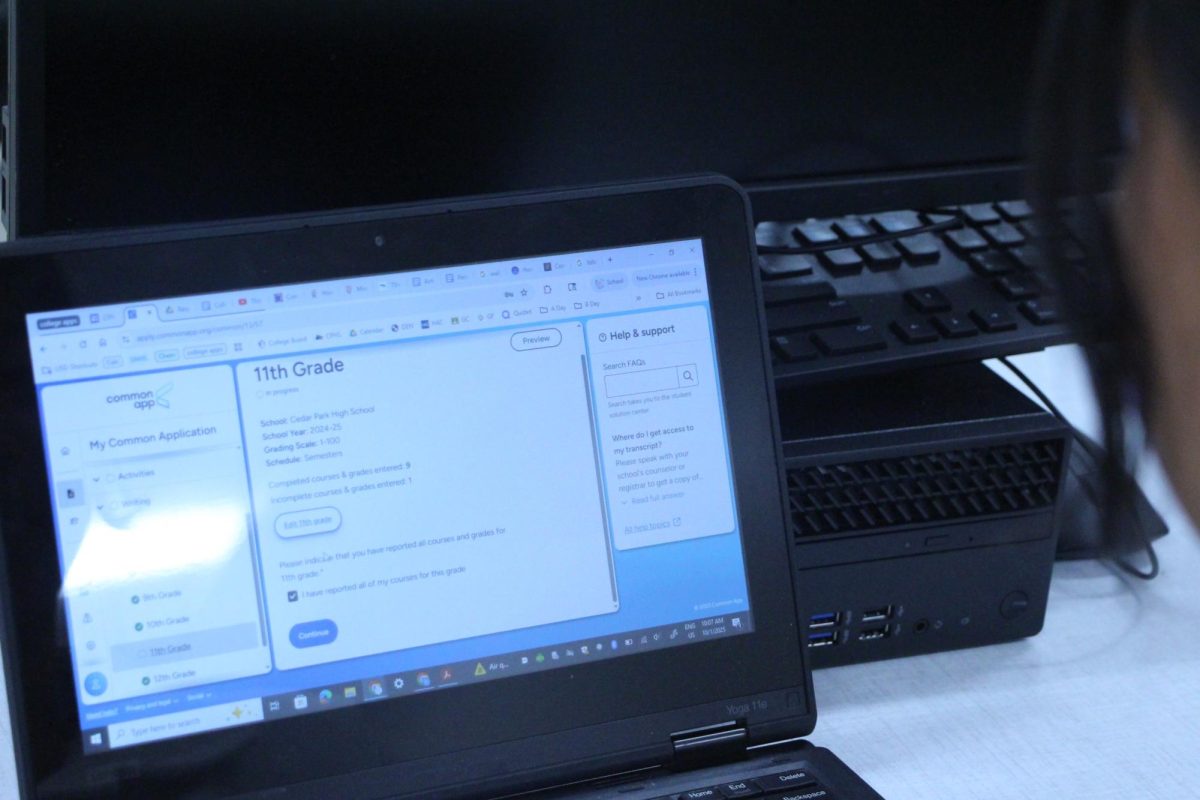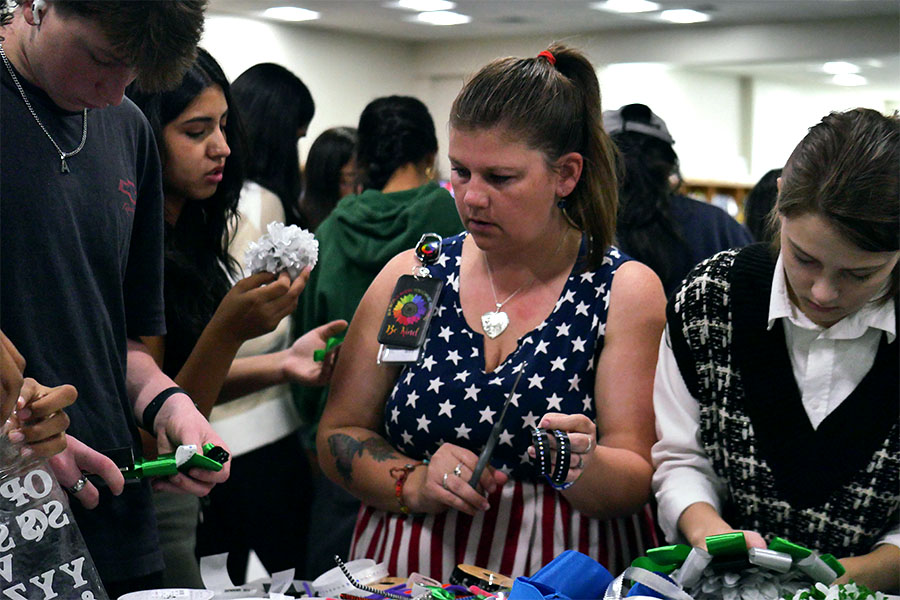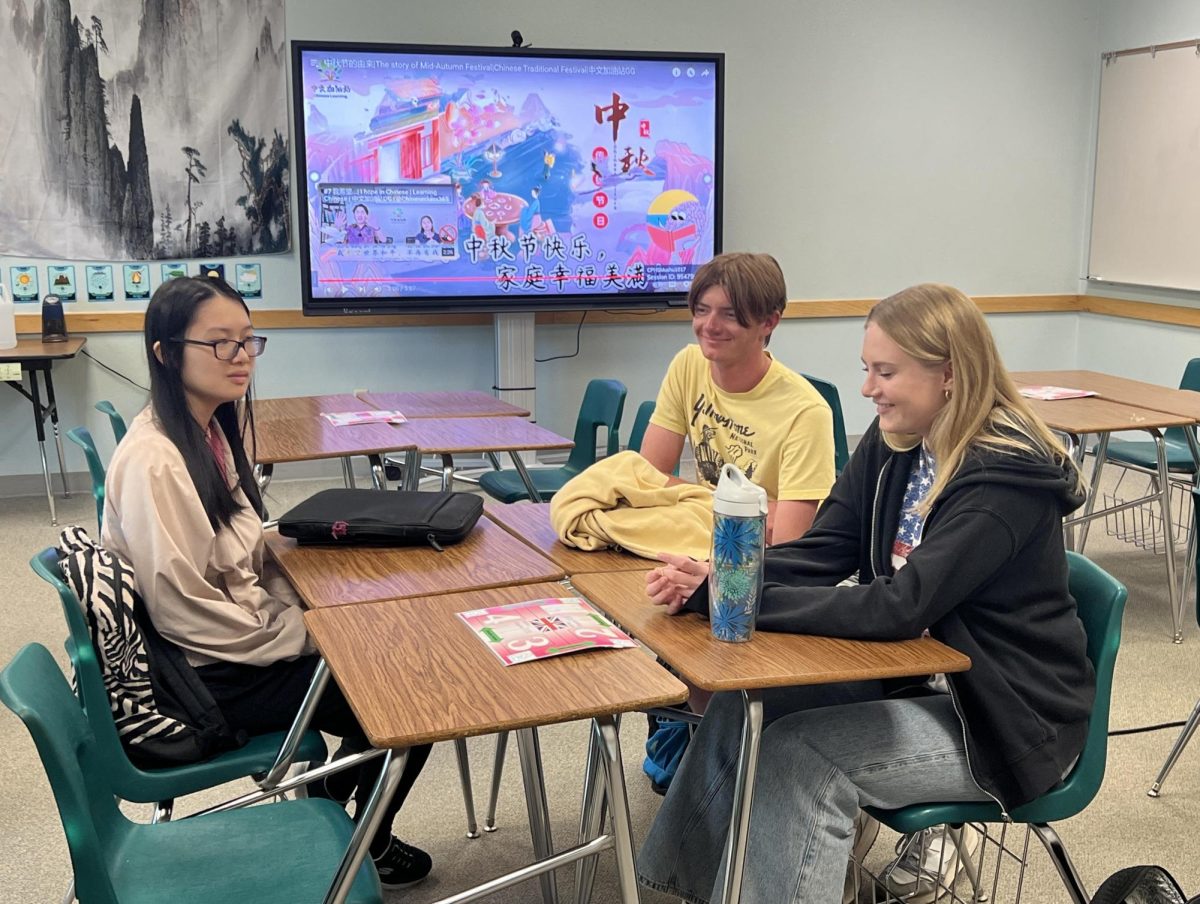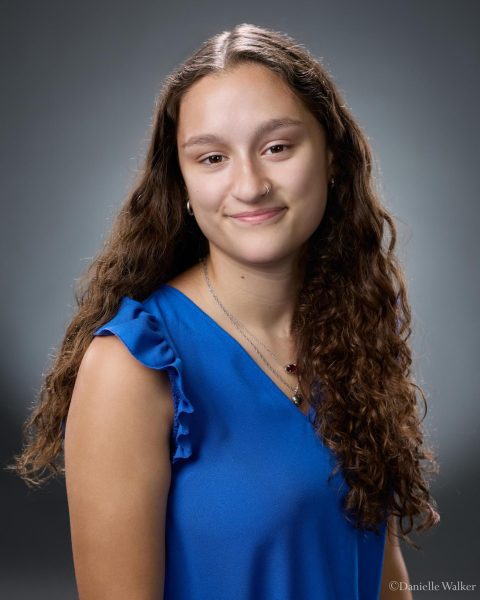In an effort to bring higher education to the Chinese language classes, Chinese teacher Joyce Chen and seniors Eden Yu and Carter Peterson decided to try and create an AP Chinese class. The group hopes to expand their knowledge of the language and broaden their future opportunities to learn more about the culture and traditions of Chinese speaking countries.
The idea a former senior made came back up as it had stuck with Yu, she said. Now, Chinese-speaking students have the opportunity to earn college credits.
“I think that Chinese is the most widely spoken language in the world,” Chen said. “I think it would be useful for our students in the future to open up doors for them. Whether it’s business or just having different experiences if they want to go to Asia.”
The district had always wanted an AP Chinese class, Chen said, and it was more about the lack of students. After support from the students and teachers at the open house, Chen said she was finally able to incorporate the class into the Chinese curriculum.
“It wasn’t necessarily approaching the administration more than anything,” Yu said. “We just wanted to see if we could introduce Chinese, the culture, the language to more people, and to see if that interest would lead us somewhere else. So I never proposed it to the principal, but rather I think it was just something that was bound to happen with how many people we’ve inspired to take the course and to be interested in it.”
As students navigate their educational paths, the AP Chinese class offers more than linguistic skills; it equips them with cultural insights and aids them in career opportunities.
“I want to continue doing Chinese in college,” Peterson said. “I’d like to use it doing international business and the best way to do that is by starting younger, because you learn Chinese or any language better the younger you are.”
The Chinese class builds a culture of being open to understanding whenever someone makes a mistake and teaching each other how to grow and become better.
“Academically, I think it’s a great way to learn about a completely different language,” Yu said. “Asian-based languages are the hardest to learn when your first language is English or Spanish and I think it’s a great way to see how much you’re capable of even when your circumstances set you up to struggle a bit.”
The complexity of the Mandarin language poses unique challenges for learners. With its thousands of characters, tonal nuances and diverse dialects, including distinct writing and pronunciation, Chen said engaging students in Chinese class can often prove difficult.
“Chinese is such a challenging language to start if you’re not already exposed to it,” Chen said. “Most people don’t feel the confidence to take on the challenge, and sometimes students are too busy so they can’t commit the time.”
This class focuses primarily on immersing the students in the language and pushing them to try their best in the class. With very few people currently enrolled, the class considers itself a family of people trying to learn and speak the language instead of a large group of students just trying to get an ‘A’ Yu mentioned.
“It’s probably one of the hardest classes I’ve taken,” Peterson said. “It’s completely spoken in Chinese, so even if I have a question I have to figure out how to say it. But, this class will hopefully teach me to socialize easier because we have to talk to each other and use skills in becoming a conversationalist.”
After many requests from students and their families, the AP Chinese class was finally able to be introduced. Through the class’ curriculum, it offers students a chance to further their language education and get those extra credits.
“Students and parents during the open house kept asking me for years about an AP class,” Chen said. “It was really out of my hands, but I told them if they were interested, they should talk to their counselors, who then talked to the administration and that’s how we got [this class].”
Since it’s a new class, it only has a couple of students, but students hope to gain more acknowledgment soon so Chen can continue teaching the complex language.
“If I had the opportunity to take the class this year, I would have loved to be able to have conversations with my peers beyond just learning what’s on a piece of paper,” Yu said. “Getting to ask questions in Chinese, laugh about different things in the language that we’re learning and just bonding over that with my peers.”










![Broadcast, yearbook and newspaper combined for 66 Interscholastic League Press Conference awards this year. Yearbook won 43, newspaper won 14 and broadcast took home nine. “I think [the ILPC awards] are a great way to give the kids some acknowledgement for all of their hard work,” newspaper and yearbook adviser Paige Hert said. “They typically spend the year covering everyone else’s big moments, so it’s really cool for them to be celebrated so many times and in so many different ways.”](https://cphswolfpack.com/wp-content/uploads/2025/05/edited-ILPC.jpg)





![Looking down at his racket, junior Hasun Nguyen hits the green tennis ball. Hasun has played tennis since he was 9 years old, and he is on the varsity team. "I feel like it’s not really appreciated in America as much, but [tennis] is a really competitive and mentally challenging sport,” Nguyen said. “I’m really level-headed and can keep my cool during a match, and that helps me play a bit better under pressure.” Photo by Kyra Cox](https://cphswolfpack.com/wp-content/uploads/2025/09/hasun.jpg)

![Bringing her arm over her head and taking a quick breath, junior Lauren Lucas swims the final laps of the 500 freestyle at the regionals swimming competition on date. Lucas broke the school’s 18-year-old record for the 500 freestyle at regionals and again at state with a time of 4:58.63. “I’d had my eye on that 500 record since my freshman year, so I was really excited to see if I could get it at regionals or districts,” Lucas said. “ State is always a really fun experience and medaling for the first time was really great. It was a very very tight race, [so] I was a bit surprised [that I medaled]. [There were] a lot of fast girls at the meet in general, [and] it was like a dogfight back and forth, back and forth.” Photo by Kaydence Wilkinson](https://cphswolfpack.com/wp-content/uploads/2025/03/Kaydence-2.7-23-edit-2.jpg)
![As her hair blows in the wind, senior Brianna Grandow runs the varsity girls 5K at the cross country district meet last Thursday. Grandow finished fourth in the event and led the varsity girls to regionals with a third place placement as a team. “I’m very excited [to go to regionals],” Grandow said. “I’m excited to race in Corpus Christi, and we get to go to the beach, so that’s really awesome.” Photo by Addison Bruce](https://cphswolfpack.com/wp-content/uploads/2025/10/brianna.jpg)













Joseph and Judith Juszak • Feb 2, 2025 at 3:09 pm
Another great job, kasandra. Keep it up
Love you, nana